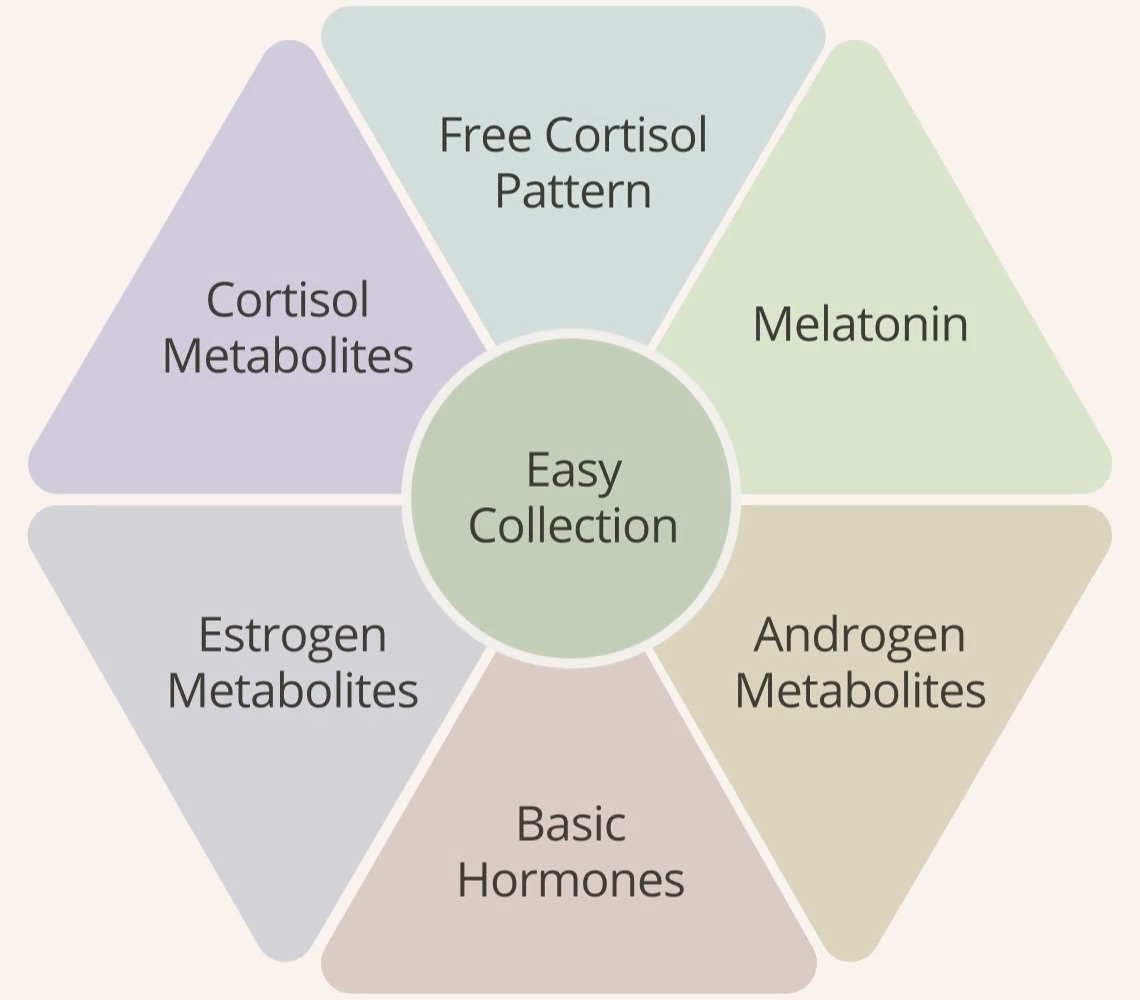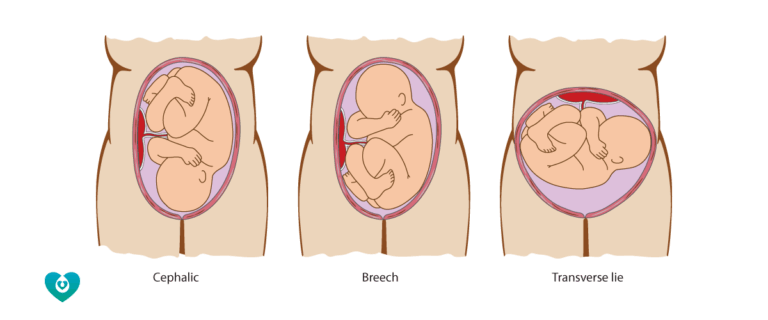Whether you’re preparing to conceive or entering a new phase of life through menopause, understanding your hormone health is essential. At Acumamas, we meet many people looking to better understand their reproductive health, and we believe that clarity is the first step toward care that is both effective and supportive.
One of the most comprehensive tools we use is the DUTCH Test. It gives us a detailed look at hormone patterns across a full 24-hour cycle, offering insight into how your body is producing, processing, and clearing key reproductive and stress hormones. For fertility patients, it helps bring clarity to questions about cycle irregularities, ovulation timing, or hormone-related symptoms that may be affecting conception. For those in perimenopause or menopause, it helps us assess estrogen and progesterone decline, cortisol rhythms, and hormone metabolism—key considerations when determining whether hormone replacement therapy (HRT) or natural support is appropriate. In combination with other diagnostic methods, the DUTCH test allows us to support your hormonal health with greater precision and confidence.
What Is the DUTCH Test?
The DUTCH Test—short for Dried Urine Test for Comprehensive Hormones—is a non-invasive, at-home test that provides a broad and detailed picture of your hormone landscape. Unlike conventional blood tests that offer a single snapshot at one point in time, the DUTCH test captures hormone levels and metabolites over a full 24-hour period. This allows us to see not only how much hormone your body is producing, but also how it’s metabolizing and eliminating those hormones—insight that can be especially important in fertility and menopause care.
We use the DUTCH test as part of our broader diagnostic approach to uncover root causes and build a treatment plan that’s tailored to your specific hormonal needs. It’s a valuable tool not only for initial assessment, but also later on when we want to measure progress and fine-tune your care. Many of the hormone imbalances that affect fertility or menopause are subtle and don’t always show up on standard lab work. This is where the DUTCH test shines. For fertility patients, it can detect low progesterone in the luteal phase—critical for supporting implantation—or reveal elevated DHEA and testosterone, which are often present in women with PCOS. It can also flag high estrogen or poor detoxification pathways that might be contributing to painful periods, fibroids, or endometriosis.
Why this test matters for Fertility and Menopause
For perimenopausal or menopausal patients, the DUTCH test offers insight into shifting estrogen and progesterone levels, adrenal stress, and how well the body is adjusting to this new hormonal baseline. It helps inform our decisions around using bioidentical hormone replacement therapy (HRT), herbal support, or lifestyle strategies for symptom relief and long-term health.
When we understand how your hormones are functioning across a full cycle or transition phase, we can develop a treatment plan that’s precise, proactive, and personal.
How We Use DUTCH Results at Acumamas
The test involves collecting small urine samples at four to five intervals throughout the day using filter paper strips, which are then sent to a specialized lab. From those samples, the lab generates a comprehensive report measuring a wide range of reproductive and adrenal hormones, including estrogen, progesterone, testosterone, cortisol, DHEA, and melatonin. It also shows how your body breaks down and clears hormones through the liver and detox pathways—something standard hormone tests often overlook.
This expanded view helps our team understand how your hormonal systems are functioning in a more nuanced way. For example, if your progesterone levels appear normal but your body is converting it too quickly or inefficiently, the DUTCH test can help identify that imbalance. Similarly, it can show whether stress hormones like cortisol are affecting your cycle or ovulation, and whether your body is efficiently detoxifying excess estrogen—both of which are common, treatable factors in fertility challenges. For menopausal patients, it helps identify low estrogen or erratic cortisol rhythms that may be contributing to hot flashes, fatigue, mood changes, or sleep disturbances.
Once your DUTCH results are in, your Acumamas naturopath will go over the findings with you in detail. Based on your hormonal profile, we’ll design a care plan that could include tailored supplementation (such as Vitex for low progesterone or DIM to support estrogen clearance), nutrition strategies that reduce inflammation and support liver health, and acupuncture treatments that align with your menstrual cycle or menopausal symptoms.
The DUTCH test plays a central role in Phase 1 of our Three-Phase Integrative Fertility Framework, where we gather diagnostic insight to build your plan. It also plays a key role in menopause care, helping us monitor hormone changes and evaluate whether current support is working. In fertility care, we revisit the test in Phase 3 to measure progress and fine-tune treatment.
When Should You Consider the DUTCH Test?
If you’re trying to conceive and have been facing challenges, or if you’re navigating symptoms related to perimenopause or menopause, the DUTCH test may offer important insights. It’s also helpful if you’ve been told your standard labs are “normal” but still feel off, or if you’re considering hormone replacement therapy and want to better understand your baseline before making that decision.
How Much Does the DUTCH Test Cost?
At Acumamas, the cost of the DUTCH Complete test is $575 CAD. This includes the test kit, full lab analysis, and interpretation by our naturopathic doctor, who will walk you through the results and incorporate them into your personalized care plan. The test is completed from the comfort of your home and includes pre-paid shipping to the lab.
To summarize, we use the DUTCH test both as a starting point to uncover what needs to be addressed and as a tool to measure how well your body is responding to treatment over time. It helps guide our clinical decisions and offers a clear before-and-after picture of your hormonal health. It all begins with a one-on-one consultation with our naturopath, who will help determine whether this test is right for you. Ready to gain clarity about your hormones and take the next step toward feeling balanced and supported? We’re here to help you begin with insight.
Frequently Asked Questions
Is the DUTCH test covered by insurance?
Many extended health plans in Canada cover naturopathic services, which may include the consultation and test interpretation. While the test kit itself may not be reimbursed directly, we provide detailed receipts for health spending accounts and insurance claims.
Can I do this test while on hormonal birth control or HRT?
The DUTCH test is most accurate when you’re not on synthetic hormones, as they can suppress or distort natural hormone patterns. If you’re transitioning off birth control or considering starting HRT, we’ll guide you on the best timing for accurate testing.
How long does it take to get results?
Once the lab receives your sample, results typically take 2 to 3 weeks. We’ll schedule a follow-up appointment to review everything in detail and adjust your care plan accordingly.
Do I need to stop supplements or medications before the test?
It depends on what you’re taking. Some supplements and herbs can influence hormone levels. During your initial consultation, we’ll give you specific instructions on what to pause or continue to ensure the most accurate results.
Can I use the DUTCH test if I’m not trying to get pregnant?
Yes. The DUTCH test is just as valuable for those in perimenopause or menopause, or anyone experiencing cycle issues, fatigue, mood shifts, or other hormone-related symptoms.






